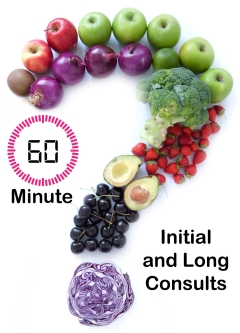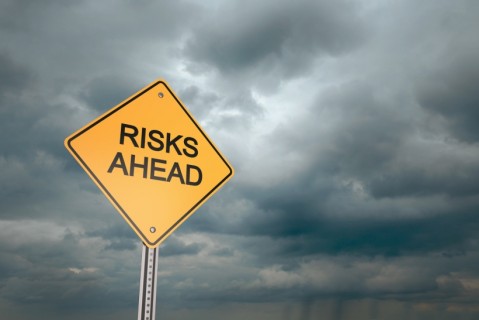DrCarney.com Blog
Seven Ways Salt Impacts our Health
With respect to sodium intake, the best advice may be to wait until we're seated at the table to shake on the salt -- if we choose to salt our food at all. Most of us like the flavor of salt. If we haven't been diagnosed with high blood pressure, is there any reason to adopt a low-sodium diet? What does science say about the effect of dietary salt on our health?
Medical researchers have long observed the effect of salt on the human body. A 2002 article in the Journal of Human Hypertension cited 125 medical studies on the effects of dietary sodium on various body systems--and that's just the tip of the research ice berg. More recently, Joel Fuhrman, MD, reviewed the medical literature on salt. He wrote a blog about seven ways that excess sodium can cause problems. Unfortunately the original blog by Dr. Fuhrman seems to have been unpublished in a sight redesign. Here is a summary:
(1) High Blood Pressure
According to Dr. Fuhrman, there's a 90% lifetime probability that we will develop high blood pressure if we are eating like most Americans. High blood pressure comes with some serious risks. The American Heart Association notes that elevated blood pressure is present in 69% of people who experience a first heart attack, 77% who have a first stroke, and 74% who develop congestive heart failure. Up until age 45, more men than women are diagnosed with high blood pressure. Between ages 45-64, the percentage of the population diagnosed with hypertension rises to about 50%, divided increasingly equally between men and women. After age 64, women outpace men in new hypertension diagnosis. Says Dr. Fuhrman, "Even if you eat an otherwise healthy diet, and your arteries are free of plaque, hypertension late in life damages the delicate blood vessels of the brain, increasing the risk of hemorrhagic stroke."
(2) Cardiovascular Damage
Salt appears to damage the cardiovascular system in ways that are unrelated to elevated blood pressure. In 2011, it was discovered that within 30 minutes of eating a high-salt meal, endothelial function is impaired. This means that sodium intake has an adverse effect on the delicate lining of our blood vessels, rendering our arteries unable to properly expand in response to increases in blood volume. Stiffened arteries are one result of a long-term diet high in sodium.
(3) Kidney Damage
High blood pressure is a risk factor for kidney disease; however, elevated sodium intake can damage our kidneys even if our blood pressure is normal. High salt intake causes oxidative stress to the kidneys, and is associated with a decline in kidney function.
(4) Loss of Calcium from Bones
Osteoporosis is a condition where bone is weakened due to the loss of minerals that make up bone structure. High sodium intake leads to osteoporosis because salt has an acidic effect our body's delicate pH balance. When our system becomes too acidic, our body robs calcium from our bones to counteract the acid, lowering our bone density. Researchers have determined that even if we are eating a high calcium diet, there is a net calcium loss from our bones when we eat a high-sodium diet.
(5) Ulcers and Stomach Cancer
Dr. Fuhrman's review of the medical studies on sodium intake reveal that "salt is the strongest factor relating to stomach cancer. A high salt diet also increases growth of the ulcer-promoting bacteria H. pylori in the stomach, which is also a risk factor for gastric cancer."
(6) Asthma
High salt intake may increase the severity of the disease in asthma patients according to several studies.
(7) Increased Inflammation in Autoimmune Disease
Excess salt intake may increase the inflammation associated with several autoimmune diseases. Dr. Fuhrman notes that there was a correlation between people who often eat fast food (known to be high in sodium) and people with auto-immune disease; a certain pro-inflammatory immune cell type was found to be elevated in both groups, suggesting that excess sodium could be involved. Further studies of these immune cells led to the same conclusion. And mice who were genetically pre-disposed to autoimmune disease more quickly developed the disease if they ate a high-salt diet as opposed to a regular diet.
Reducing Our Taste for Salt
Sodium is one of those addictive substances I address in Why We Do What We Do?, a lecture I give that explains the origin of cravings and addictions. You can watch the trailer and rent or purchase it here. Knowledge is power, and we can more easily break those unwanted habits if we understand what drives them.
When it comes to the craving for salt, there's a lot of hope. A study on how taste responds to a lower sodium diet showed that after just three months, test subjects began to prefer the taste of reduced salt foods. In fact, when the test subjects were allowed to salt their own food, they added less and less salt as the weeks went by. After a year, the test subjects were adding half the salt as they had done originally, yet the lower amount of sodium tasted equally salty to them. The study demonstrated that our taste can change, and we can enjoy our food just as much if we decide to reduce or eliminate the added salt.
The human diet was designed to be enjoyed without additional salt; natural foods without any added salt generally provide us with 500 to 1000 mg of sodium a day. Processed food, restaurant food, and salt added at home during the cooking process drive our sodium intake to unsafe levels. Even if we use exotic or more "natural" salts which contain small amounts of other minerals, the effect of excess sodium is still the same on our body. In order to reduce our dependence on salt, we can experiment with onion, garlic, spices, herbs, or lemon/lime juice to find new flavor combinations that please our taste buds. If we still desire some salt, the better choice is to avoid adding it until we're sitting at the table. Then we can shake on the minimum amount needed to make our food appealing to us. If we are intentional about reducing our sodium intake, over time we'll find that we need less and less salt to enjoy our food.
For additional information:
(1) High Salt Diet Is Risky, Even if Your Blood Pressure Is Normal
(2) Sodium Skeptics Try to Shake Up the Salt Debate
(4) How Industries Keep You Coming Back for More
Joel Fuhrman MD Links
Preview the "Why We Do What We Do?" Trailer
Controlling Cravings: Have you ever asked yourself "Why did I eat that?" Get science-based answers, now! Gain freedom from addictions. Understand underlying causes. Make lasting changes more easily than ever. Strengthen your ability to choose healthy foods through empowerment from Dr. Carney's Starch-Smart® System. Let's boost your 'biochemical willpower' for good. Help is here, from Linda Carney, MD, for all who struggle with bad habits, food fixations, and cravings.
One Hour Phone Consult with Dr. Carney

Telephone Food Coaching Sessions with Linda Carney MD
Due to demand for nutritional advice, Dr. Carney's offers Starch-Smart® System "Dietary Care Extraordinaire" Food Coaching telephone sessions. The first sessions is always one hour. Subsequent sessions can be thirty minutes or one hour:
Click Here For 60 Minute Food Coaching Session
Please Note: Food Coaching sessions are not medical appointments and are not intended to replace your own physician. No tests will be ordered and no prescriptions will be provided.
When you subscribe to the blog, we will send you an e-mail when there are new updates on the site so you wouldn't miss them.




